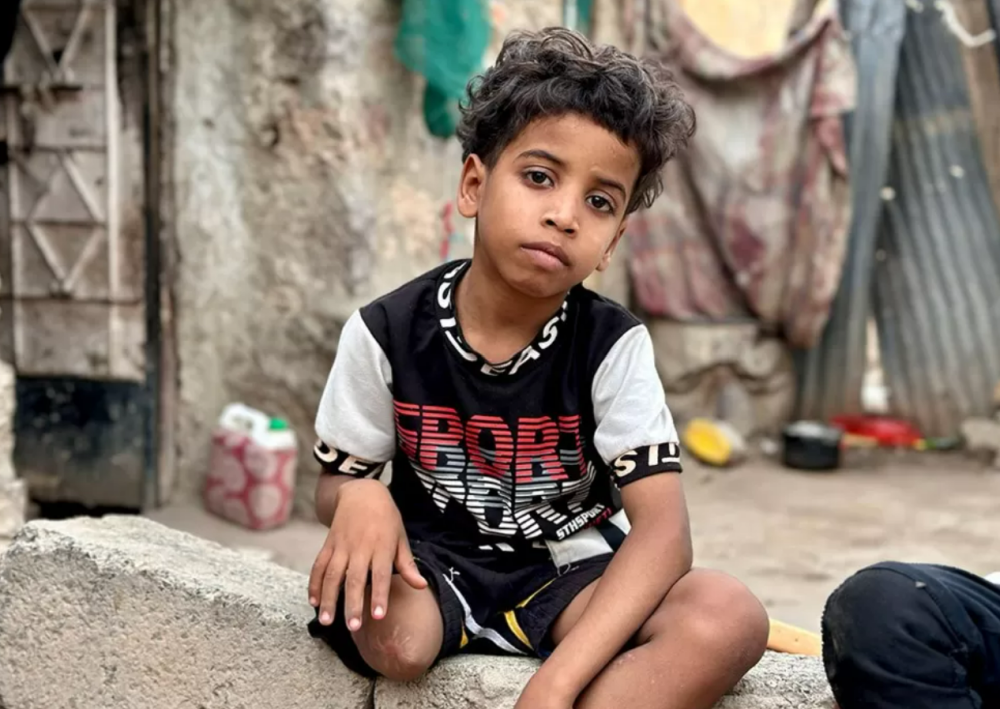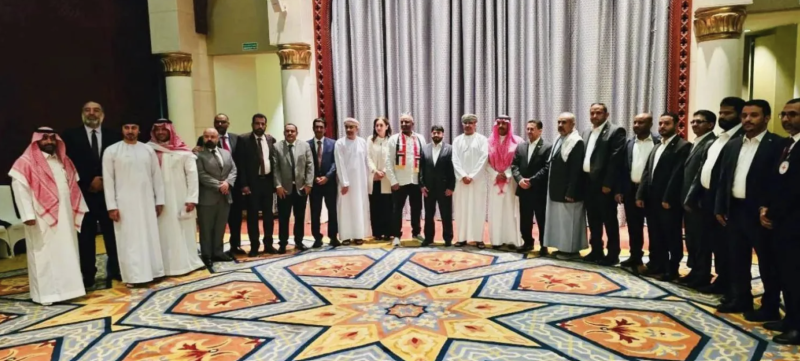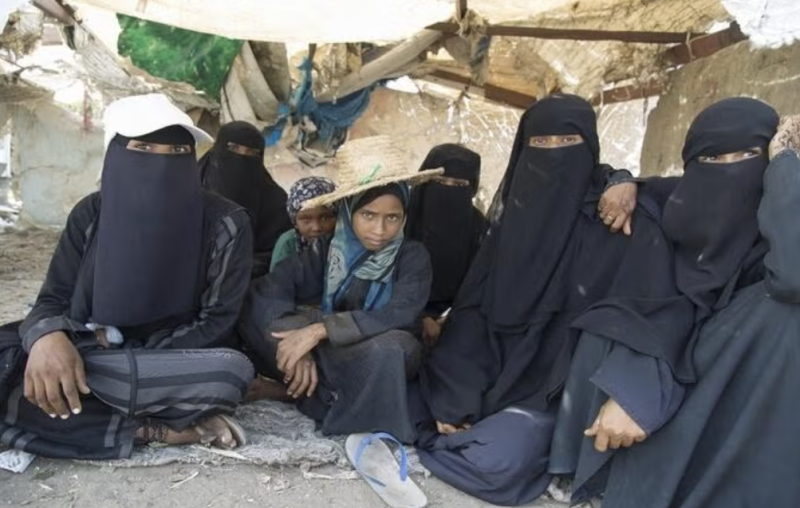Yemen: The children of a forgotten war


If suffering had an address, it might be al-Rasheed Street, in Taiz, a Yemeni city ringed by mountains and rebel Houthi fighters. On this narrow street of rough-hewn homes, the young can't escape a grinding conflict the world tends to forget.
A slight boy with a mop of dark hair leads us down the street, nimbly side-stepping potholes - with his crutches. Bader al-Harbi is seven years old, just a little younger than Yemen's war. His right leg has been amputated above the knee. The slogan on his T-shirt reads "Sport".
In the back yard of his family home, Bader sits on some breeze blocks, his stump exposed. His remaining foot has no shoe. His big brother Hashim is by his side, sharing his trauma and his silence.
Hashim's right foot has been mangled and he is missing a thumb. He fidgets endlessly with his hands as if trying to rub out the scars.
The boys were hit by Houthi shelling on an October morning last year as they came home from school on a break, according to their father, al-Harbi Nasser al-Majnahi. They have not been back to their classes since.
"Everything changed completely," he says, sitting cross-legged on a mattress. "They no longer play outside with other kids. They are disabled. They are scared and have psychological problems."
In a small voice, sounding younger than his nine years, Hashim says he would like to go back to school.
"I want to study and learn," he tells me. I asked Bader if he wants to go too. "Yes," he replies. "But my leg has been cut off, so how can I go?"
Their father says they have not been enrolled for the upcoming school year because he has no money for transport. And he has no way to get his family out of harm's way.
"Even though we are scared, we can't afford to live anywhere else," he tells me, "because the rent would be higher. So, we are forced to stay here, whether we live or die."
What began as a civil war has been fuelled by regional rivals backing opposing sides. Sunni Saudi Arabia supports Yemen's internationally-recognised government, weak as it is. Shia Iran backs the Houthi movement, formally known as Ansar Allah (or Supporters of God).
In September 2014, the Houthis seized Yemen's capital, Sanaa, driving out the government. The following spring a Saudi-led coalition intervened, backed by the UK and the US.
The Saudis promised a quick operation to restore the government to power. Not quite.
Eight years, and thousands of coalition air strikes later, the Houthis still hold the capital. The Saudis now want a quick exit - militarily at least.
And on the front lines in Taiz, Bader and Hashim still sleep and wake to the sound of warfare.
"I hear explosions," says Bader, "and there are snipers. They shoot everything in the neighbourhood. I feel like there could be an explosion near me, or the house could be blown up."
We walk a few steps to the house next door - where another childhood has been ripped asunder.
Amir appears on the doorstep - a three-year old in a yellow T-shirt, silent and sombre. In place of his right leg there is a metal prosthetic. His father, Sharif al-Amri, helps him to stand, bending often to kiss his forehead.
Amir was maimed on the same day as Bader and Hashim - just a few hours later.
He was in a relative's house across the road when it was shelled, killing both his uncle and his six-year-old cousin. Amir survived but has penetrating wounds of memory.
As Sharif puts his son's pain into words, Amir nods off in the stifling heat, cradled in his arms.
"He remembers every moment after the shelling happened until he arrived at hospital. He says, 'This happened to my uncle, and this happened to my cousin.' He talks about the smoke and the blood that he saw. When he sees children playing, he gets very upset and says, 'I don't have a leg.'"
Every house on this street has its measure of fear. Munir's has more than most. The father of four leads me down an alleyway to his family home, which is right in the line of fire. Houthi gunmen are as near as his neighbours - he says about 20-30m away.
"There's a sniper is front of us," says Munir, crouching down by his living room window. "I can see him now if I open the window. If you go outside to the garden, he will shoot.
"We live in fear here in Taiz. People don't know when they will be hit by a missile or a sniper. God willing there will be peace and Yemen will go back to being great."
In the hallway we meet his eldest son Mohammed, an animated 14-year-old who relies on a wheelchair. When his school was shelled the other pupils ran away, leaving him behind. Now he worries that, if his house is hit, his family could be hurt trying to rescue him.
For more than 3,000 days Taiz has been virtually besieged, a battleground between government and Houthi forces. And the young have not been spared.
A local doctor told us that since 2015, he has treated about 100 child amputees - maimed by Houthi shelling, mines and unexploded ordnance.

Saudi Arabia welcomed the agreement signed on Tuesday, December 23, 2025, in Muscat, Oman, between the internationally recognized Yemeni government…

By/April Longley Alley* Among the broader regional repercussions of the Gaza ceasefire in October, one of the most signifi…

Al-Hodeidah – Local sources in Yemen’s Al-Hodeidah province have disclosed that Houthi militias are resorting to new methods of exploit…